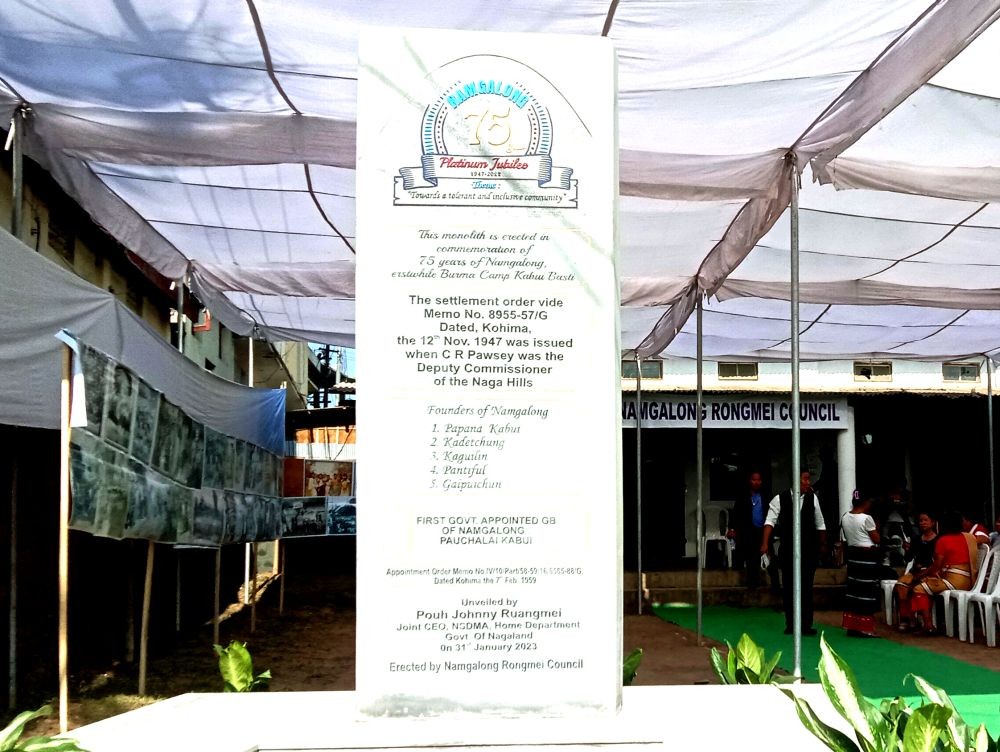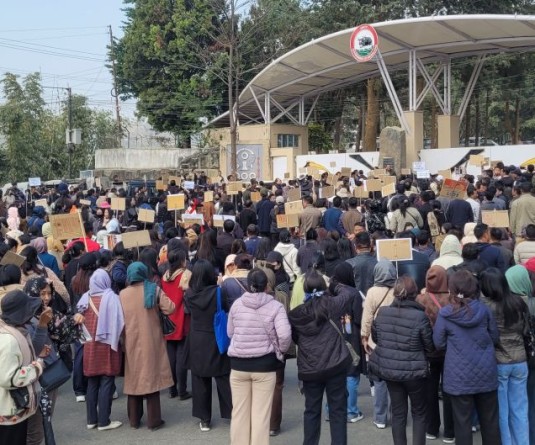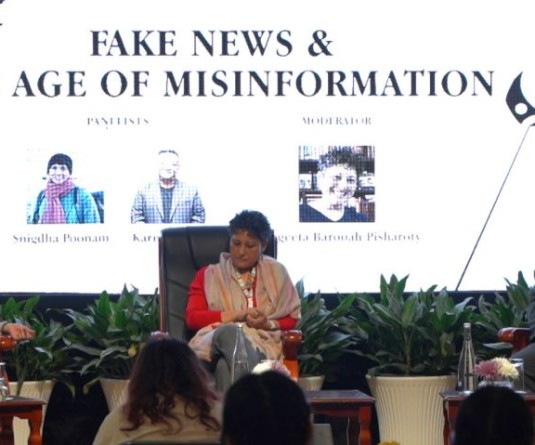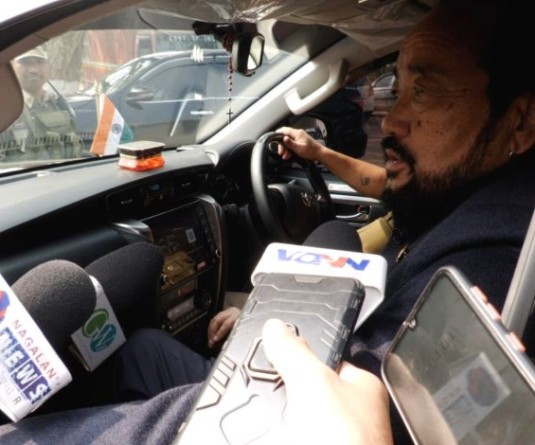The ceremonial platinum jubilee monolith of Namgalong, erected by Namgalong Rongmei Council, which was unveiled by the special guest, Johnny Ruangmai, Joint CEO, NSDMA. (Morung Photo)

‘Rongmeis should endeavour to create an environment that is inclusive’
Morung Express News
Dimapur | January 31
Namgalong, erstwhile known as Burma Camp Kabui Basti, commemorated its 75th founding anniversary on January 31. Johnny Ruangmei, Joint CEO, NSDMA, was the special guest at the programme, which was organised by the Namgalong Rongmei Council.
According to the official records of the Deputy Commissioner of the then Naga Hills district of Assam, the village was established via a “Settlement Order” issued by the DC of Naga Hills, Charles R Pawsey on November 12, 1947. The document of settlement was signed by the SDO to the DC, A Kevichusa.
As per the Head GB of Namgalong, Chingkhiulung Gonmei, the settlement order was issued to five individuals, namely— Papana Kabui, Kadetchung, Kaguilin, Gaipuichunand Pantiful, who became the founders of the village and who descendants exist to this day. Papana Kabui was the first headman of the village, followed by Pauchalei Kabui, who became the first government-appointed GB of the village in 1959. While the formation of the village happened in 1947, he reminded that the Rongmeis, formerly known as Kabui, inhabiting the present-day Dimapur predates Indian independence as they were recorded as a community of the Naga Hills in the Assam Census of 1891. According to him, Rongmeis, who were conscripted in the Naga Labour Corps during World War I, went on to settle in Dimapur after returning from Europe.
There were two other Rongmei villages in Dimapur that were established earlier. The 75th jubilee magazine recounted, “It merits mention here that prior to the establishment of Namgalong in 1947, there were two Rongmei villages already in existence in Dimapur namely- Ragailong,which was established in 1937 in the erstwhile Fullerganz Bazaar where the present New Market Stands. The village was shifted to the present site at Burma Camp in 1964. The other village was Tangnajeilong, established in 1942 by Mubipou Kabui and his brother Kaningjei.” It went on to be known as Zeliangrong village “to foster brotherhood and strengthen familial bond among the Rongmei, Liangmai and Zeme, who came later and settled in the village.” It stated that other Rongmei settlements/villages were established in Dimapur, Kohima and the Jalukie valley in Peren.
Special guest, Johnny Ruangmai, in his address, laid emphasis on documenting and remembering history. “If we do not know our history other communities would also not know about us. We need to know our history why we existed here in Nagaland,” he said. On that note, he appealed the other Naga communities of Nagaland to “be our ambassadors and tell about us to others that we also exist here,” while expressing optimism that a platform of common good would be created in the coming days.
“Now, many people say the Rongmei do not have a native village and therefore we cannot become indigenous. Let it be. We are like the Israelites. God will lead us one day,” he said. On the brighter side, he said that not getting governmental facilities has been rather advantageous as getting used to government assistance would make one laidback.
According to him, the future is not something that one has to wait to happen, rather it has to be imagined and created. Likewise, he said that the Rongmeis should start imagining and creating the future “we want to lead.”
Namglong village, he said, should bring forth the beauty of the Rongmei culture “not for ourselves but for the common good of the Naga society.”
As implied by the jubilee theme— Towards a tolerant and inclusive community, he said that the Rongmeis should endeavour to work towards creating an environment that is inclusive and one that which will create avenues for the common good of the people.






